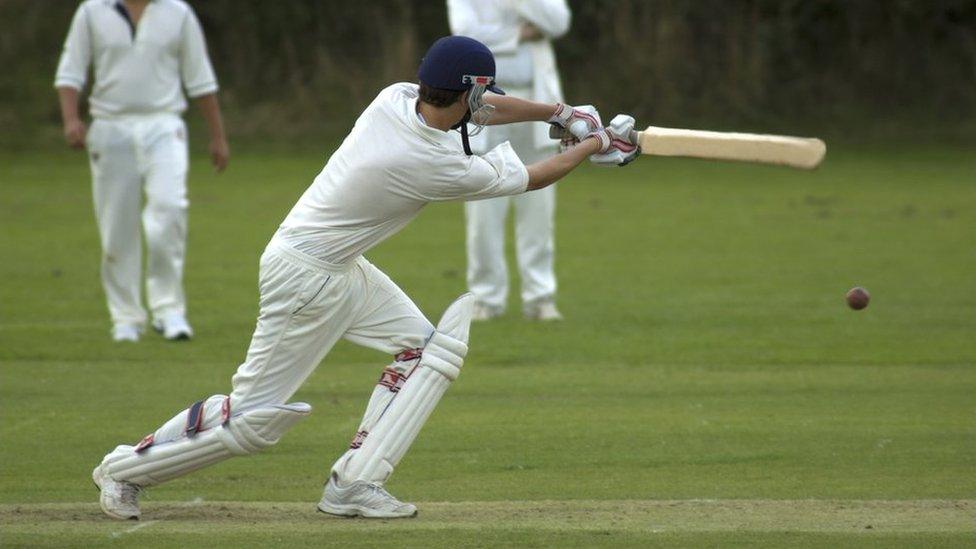Cricket puts players on mental health rollercoaster, study says
- Published

The study focused on the men's game but researchers hope there will be a chance to broaden their work
County cricketers in England experience a "rollercoaster" of mental health emotions during their careers, a new study has found.
The study, published by Loughborough University researchers, said players experienced extreme highs and lows.
Contributing factors include short-term contracts and job insecurity which lead to potential negative mental health.
The researchers said there had been a lack of academic interest in the subject.
'Important issue'
The findings, which were published in the Journal of Applied Psychology, noted the transitions in the sport from joining an academy, to making the first team, to finally leaving the sport, could also have an impact.
Research showed although The Professional Cricketers' Association (PCA) provided adequate support and education, a stigma around mental health remained in the game.
However, it also found factors associated with a career in professional cricket, such as travelling the world, playing in different competitions, finals, and cultures, all, had a positive, stimulating and nourishing impact on participants' mental health.
This was further enhanced by players regularly featuring on live television and playing in front of large crowds.
'Leading the discussion'
The research was led by postgraduate student Dan Ogden and supported by Dr Jamie Barker, Dr Janine Coates and Dr Carolyn Plateau.
The project focussed on current and former cricketers and data was collected through one-to-one interviews with a mix of male batters and bowlers.
"Over the last decade cricket has led the sporting discussion around mental health, yet there has still been a lack of academic attention," Mr Ogden said.
Dr Barker said: "This is a really interesting and exciting project which starts to explore an important issue in professional cricket.
"While much of the media narrative is often about negative mental health experiences in cricket, our data really do demonstrate how cricket provides so many nourishing and energising opportunities for positive mental health."
The researchers recommend further steps to protect player mental health, such as having a strong support network away from cricket, and participating in meditation, yoga, and general exercise.
The team said the full findings of the study would be presented at various sport conferences, with potential for future research in the women's game and other formats of cricket.

Follow BBC East Midlands on Facebook, external, on Twitter, external, or on Instagram, external. Send your story ideas to eastmidsnews@bbc.co.uk, external.